Frugality is a lifestyle. Frugal people aim to save money wherever possible—that means avoiding reckless spending, meticulously budgeting, and always trying to find the best deals on whatever they buy.
Generally, then, being frugal is considered a good financial trait. After all, it wouldn’t hurt most people to save a little more money. Some people even make frugality fun by turning it into a challenge for themselves.
But beware: There is such a thing as too frugal. You can cross the line and become cheap or even downright be in over your head.
The wise path to frugality involves a little flexibility. Strict rules—never spend money whenever possible, always buy the cheapest item, always grab the biggest discount—can actually result in you having to spend more money in the long run. No, to do frugal right, you need to know the nuances of when to fully cheap out … and when to spend up.
If you’re looking at becoming a more frugal person, here are some “frugal fails” you should strive to avoid.
Featured Financial Products
Table of Contents
Frugal Mistakes to Avoid
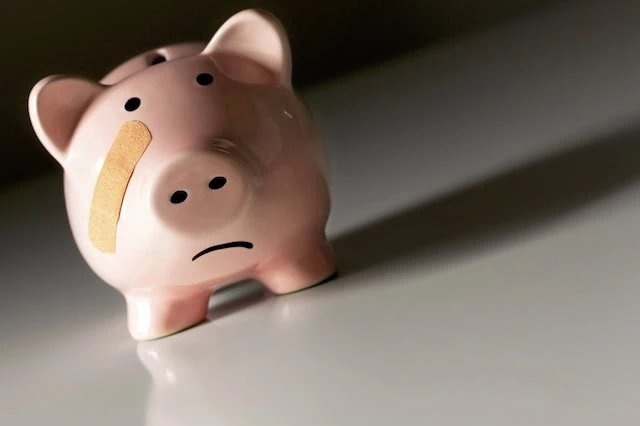
Like I just mentioned, some extreme attempts at saving money can backfire on you—you might have the best financial intentions, but you could end up spending more money than you intended.
When you’re trying to decide how to allocate your funds, keep these frugal fails in mind. Avoiding these pitfalls won’t just save you money in the long run—several of them will also help you maximize the value and quality you get for your money.
1. Not Buying Health Insurance + Avoiding Health Concerns

American health care can be exorbitantly expensive. So naturally, if you feel healthy and have no chronic conditions, you could be tempted to skip out on buying health insurance, saving yourself from those high monthly premiums.
It’s a calculated gamble, but one that could financially ruin you if you’re unlucky.
If you get in an accident that requires surgery, you’ll wish you had insurance. Data published by Debt.org shows that the average hospital stay in 2021 cost $13,262. That’s just the average—the type of treatment necessary while hospitalized can increase the cost substantially. Surgeries often rocket that bill to $100,000 or more! With health insurance, you’ll only pay a fraction of that. But without … you could be stuck with the entire bill.
Even when people do have health insurance, they often make the mistake of not using it to avoid additional copays and coinsurance costs. Indeed, according to the Commonwealth Fund’s 2023 Health Care Affordability Survey, more than a third of respondents admitted to delaying or not getting needed health care or prescription drugs because of the cost.
Again, you might save a little now, but you could put yourself in a situation where your health care costs explode. If you don’t get regular checkups, you might not detect certain health conditions until they’re much more serious and costly to treat. And if you don’t take prescribed medicine to fight known conditions early on, they could worsen, requiring more (and more expensive) prescriptions just to stay alive.
Related: Best Schwab Funds to Hold in an HSA
2. Delaying Home Repairs

Property casualty insurance agency Hippo conducts an annual Homeowner Preparedness Pulse Report. The 2023 report found that around three-fourths of surveyed homeowners said price increases and inflation hindered their planned home improvement projects in the past few months.
That shouldn’t come as any surprise. When times are tight, people often scale back or delay improvements to their homes.
But there’s a difference between holding off on, say, painting a few rooms versus doing necessary plumbing or electrical work.
In that same survey, 45% of homeowners said they experienced damage to their homes that could have been prevented—up sharply from just 19% in 2022’s Preparedness Report.
So while aesthetics can wait, delaying certain important home repairs could, in time, worsen a problem and result in much more expensive repairs. (Examples include foundational sinking, structural damage, and roof leaks.)
3. Doing Tricky Repairs Yourself

Some people are born do-it-yourselfers. Some people are not. But people in both camps are capable of overestimating their ability to DIY a repair. And that’s a lot more likely to happen when weighing DIY versus bringing in a costly professional.
Listen, if you regret that modern art you nailed into your drywall, you can probably handle a little spackle by yourself. And with the help of articles and YouTube videos, you might be able to plunge a toilet or fix a leaky faucet.
But now let’s pretend you need to repair a gas line. Maybe you’re in the minority of people who could do it themselves without a problem. But if you’re wrong, you could start a fire, requiring you to make much more expensive repairs. More importantly, this dangerous task could cause serious injury—which could lead to high hospital bills, make you miss work, and negatively affect your overall quality of life.
Again, I’m not recommending you never DIY a project. But weigh the cons of getting it wrong. If the potential downside is too high, the most frugal thing you could do might be to pony up for a professional.
Featured Financial Products
4. Using Only Cash, No Credit Cards
Some people looking to cut down on their spending avoid credit cards like the plague. And in a way, it makes sense. If you can’t spend any more money than what’s physically on you, you should, in theory, be able to curb overspending. For example: If you’re at a bar, and you tell yourself you won’t spend any more than $50, it’s still really easy to blow through that resolution with a credit card. But if you only have $50 in cash … well, good luck trying to spend $75!
However, if you use them responsibly, credit cards can actually put you in a better financial situation.
To start, having a credit card (and paying it off in a timely manner) is one of the easiest ways to build credit. And having a good credit score can help you secure loans and save money on interest payments.
Plus, rewards credit cards often offer a variety of bonuses you’d never get by only using cash. For instance, you can receive sign-up bonuses, cash-back rewards, flight miles, free hotel stays, and other monetary and prize benefits.
There’s also the issue of security: If you’re robbed of a large sum of cash, you’re unlikely to ever get it back. But when someone steals your credit card, you can cancel it and limit the damage. Also, most major credit card providers offer zero liability coverage, so if you speedily report any fraudulent charges, you won’t be responsible for them.
Related: 5 Best Debit Cards for Rewards and Cash Back
5. Always Buying the Cheapest Option
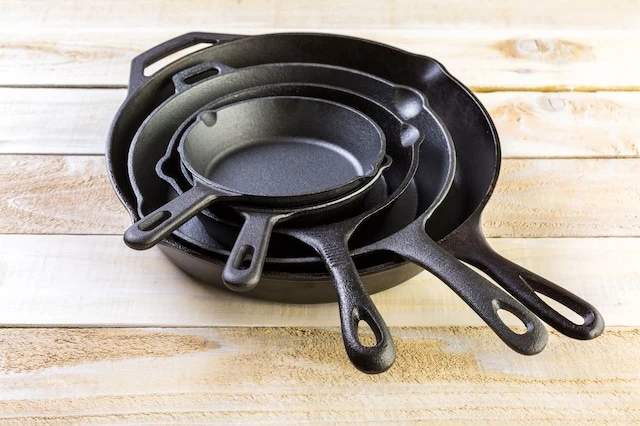
Think it’s frugal to always buy the cheapest version of whatever it is you need?
Imagine two siblings, Mike and Martha, shopping together for kitchen supplies. They stop to look at pots and pans. Mike, wanting to save money, grabs a two-piece nonstick frying pan set for $40. Martha spends $65 on a cast iron set.
At the time, Mike thought he was being more frugal. But you’re supposed to replace nonstick pots and pans every five years (and even sooner if they start to peel), so five years later, Mike buys another set, at $50 thanks to inflation. Martha, meanwhile, keeps using her cast iron cookware, which is built to last. So now, Mike has spent $90 on cookware versus Martha’s $65. This continues over the years—Mike keeps replacing his pots and pans every five years, while Martha’s cookware is so durable, she eventually passes it down to her daughter.
Listen: Sometimes, the cheaper version of a product is every bit as good (or even better!) than a more expensive counterpart. But in other situations, spending a little more now will net you a product that lasts much longer, saving you in the long run with less frequent replacements.
Sometimes, the cheaper version of a product is just as good, or even better, than a more expensive counterpart. In other situations, it’s worth spending a bit more for an item that will last. If something needs to continually be replaced, you pay more over time.
Related: 20 Big-Ticket Items Worth Splurging On
6. Buying Everything in Bulk
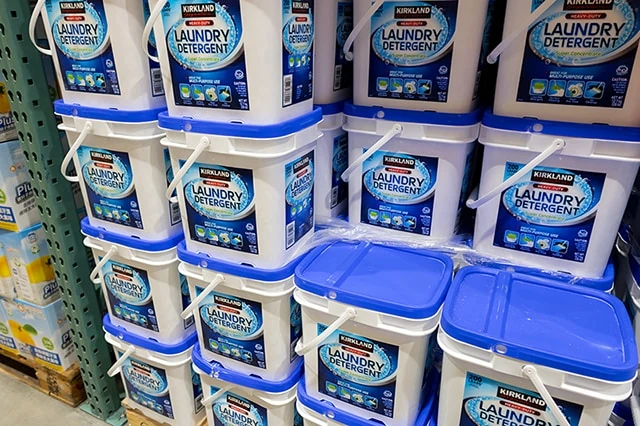
Buying items in bulk can be an excellent way to save money—but it’s not always the most cost-efficient option. Indeed, people who buy everything in bulk are sometimes wasting money without realizing it.
The biggest risk to buying in bulk is waste. If you buy a large quantity of items that go bad quickly and don’t use them before they expire, you’re not necessarily saving anything. For example: You could buy 3 pounds of oranges at your local grocery store for $3, or 5 pounds for $4 at a nearby warehouse retailer. You buy the 5-pound bag but only eat 3 pounds of oranges. While you received a better per-orange price initially, you ultimately spent more for the amount of oranges you actually ended up consuming.
Buying in bulk also is risky when it comes to products you’ve never tried before. It’s a great deal if you end up liking the product, but if you don’t, you’ve still spent a lot to secure a large quantity of something you ultimately won’t consume.
Again: Buying in bulk can save you both time and money. But you need to be strategic about which items to purchase in bulk—and which items are better off bought in smaller quantities.
Related: 20 Junk Fees We Hate Paying [And How to Avoid Them]
7. Using (But Forgetting to Cancel) Free Trials

Signing up for a free trial is easy, but forgetting to cancel it is even easier.
I should know: I’m personally guilty of this frugal failure.
A free trial can absolutely save you money, whether it’s using software for a week or enjoying some shows on a subscription service for a month.
But typically, companies will charge you as soon as the trial period ends. That’s fine if you either always intended to keep subscribing or were convinced to during the trial period. But many people simply forget to cancel and are stuck paying an onerous fee for something outside of their budget—in some cases for products they never plan on using again. Indeed, in a survey by Forbes Home and OnePoll, almost half of respondents admitted to forgetting to cancel a free trial and being charged for a subscription.
Don’t avoid free trials. Just make sure to cancel them on time. One of your best bets is to set calendar events reminding you to cancel a day before the trial period is over.
Another clever idea is to sign up using a prepaid Visa or Mastercard gift card with a low balance. For instance, let’s say your job gave you a $50 Visa gift card as a reward, and you spent $49 of it—use that card to sign up for a free trial. In the event you forget to cancel in time, the charge will be denied because of an insufficient balance, so you won’t be charged. (Note: Not all subscription services will allow you to use prepaid cards, but some will.)
Related: 10 Best Fidelity Funds to Buy
8. Not Contributing to Retirement Accounts
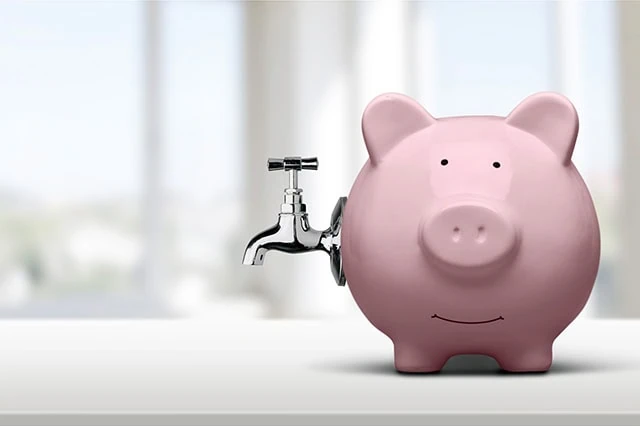
In some cases, some frugal fails are unavoidable depending on your financial situation. Not contributing to retirement accounts is a great example.
The financial benefits of contributing to a retirement account are pretty obvious. Money saved now can grow into a lot more money once you’ve hit retirement, when you’ll no longer be earning an income but still need money to get by.
Better still, retirement plans such as 401(k)s and individual retirement accounts (IRAs) offer tax advantages that help you get more from your savings than you would through other instruments.
And in some cases, employers will even pay you more for contributing to your 401(k). Employers who offer 401(k) plans sometimes offer a contribution match—either dollar-for-dollar or a percentage, up to a certain cap. So, for instance, your company might offer a match of up to 3%, so if you contribute 3%, your company will toss in an additional 3%. If you contribute nothing, though, you miss out on that free money.
Thing is, if you have your essentials covered and are merely looking for cuttable expenses to tighten up your budget, then yes, not contributing to a retirement account is a massive frugal fail. Look for other discretionary expenses to cut back on first.
But you shouldn’t, say, max out your 401(k) if it means not being able to afford groceries or rent. While you should do what you can to secure your financial future, it’s meaningless if you’re actively harming yourself today to do so.
Related: 5 Best Fidelity Retirement Funds [Low-Cost + Long-Term]
9. Signing Long-Term Gym Contracts
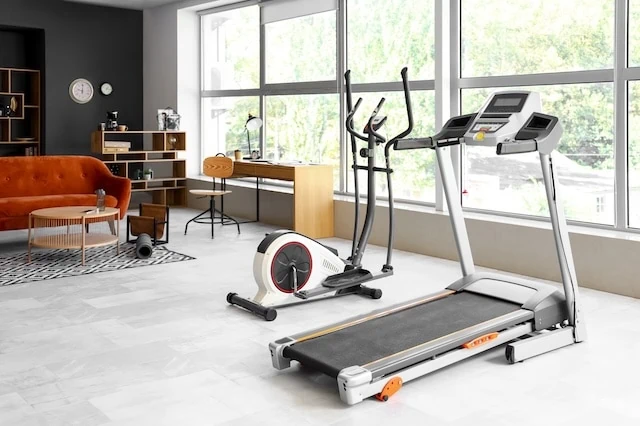
At one point, I decided to get a YMCA membership. I could either pay month by month, or pay for a year upfront at a cheaper rate (on a per-month basis). I thought the choice was pretty obvious: Pay for the entire year and save a bunch of money.
Then the pandemic hit.
I cautiously decided not to go to the gym for most of that year. But the YMCA kept its facilities open, and as long as they were open, I couldn’t get any of my money back. They wouldn’t delay my membership months easier. As a result, I ended up paying far more for a couple of months than I would have had I chosen a month-to-month contract that I could have canceled anytime.
Naturally, pandemics aren’t the only reason long-term gym contracts can go awry. You might get a serious injury that prevents you from working out for a few months. The gym might stop offering your favorite workout classes. You might move.
Some gyms also make it difficult to cancel your membership, while also automatically renewing your membership if you don’t cancel in time. And in fact, certain gyms will even try to lock you into multiyear contracts, heightening the chances something will go wrong and you won’t enjoy the savings you expected.
Related: 10 Best Vanguard Funds to Buy for the Everyday Investor
10. Missing “Once in a Lifetime” Events

Extreme frugality can save you money, but it can also cause a lot of regret.
Specifically, don’t be so frugal that you miss out on important milestones. Yes, your bank account will be better off if you don’t say yes to every dinner and event invite. But there’s a big difference between being frugal most of the time (but still spending for important events) and being frugal all of the time (and missing out on everything).
American author Daniel H. Pink has written seven New York Times bestsellers, including The Power of Regret: How Looking Backward Moves Us Forward. A mini-survey on regret created for the book found that “regrets of omission” (not doing something) outnumber the regrets of commission (something you did) by more than 3-to-1. Put simply: We tend to regret the things we skip more than the actions we take.
Don’t miss your sibling’s wedding because you’ll need to get a hotel room for the night. Don’t eschew vacations with your family and miss out on the opportunity to make memories that will last a lifetime. Skip nightly takeout, but don’t skip the pasta in Venice. Saving money isn’t its own reward—frugality allows you to, at a minimum, afford your needs and absorb emergencies, but ideally, it also allows you to save more to put toward the things that truly make you happy.
Related: 9 Monthly Dividend Stocks for Frequent, Regular Income
Featured Financial Products
Related: 6 Best Stock Recommendation Services [Stock Picking + Tips]

Stock recommendation services are popular shortcuts that help millions of investors make educated decisions without having to spend hours of time doing research. But just like, say, a driving shortcut, the quality of stock recommendations can vary widely—and who you’re willing to listen to largely boils down to track record and trust.
The natural question, then, is “Which services are worth a shot?” We explore some of the best (and best-known) stock recommendation services.
Related: 12 Best Long-Term Stocks to Buy and Hold Forever

As even novice investors probably know, funds—whether they’re mutual funds or exchange-traded funds (ETFs)—are the simplest and easiest ways to invest in the stock market. But the best long-term stocks also offer many investors a way to stay “invested” intellectually—by following companies they believe in. They also provide investors with the potential for outperformance.
So if your’e looking for a starting point for your own portfolio, look no further. Check out our list of the best long-term stocks for buy-and-hold investors.
Related: 9 Best Monthly Dividend Stocks for Frequent, Regular Income
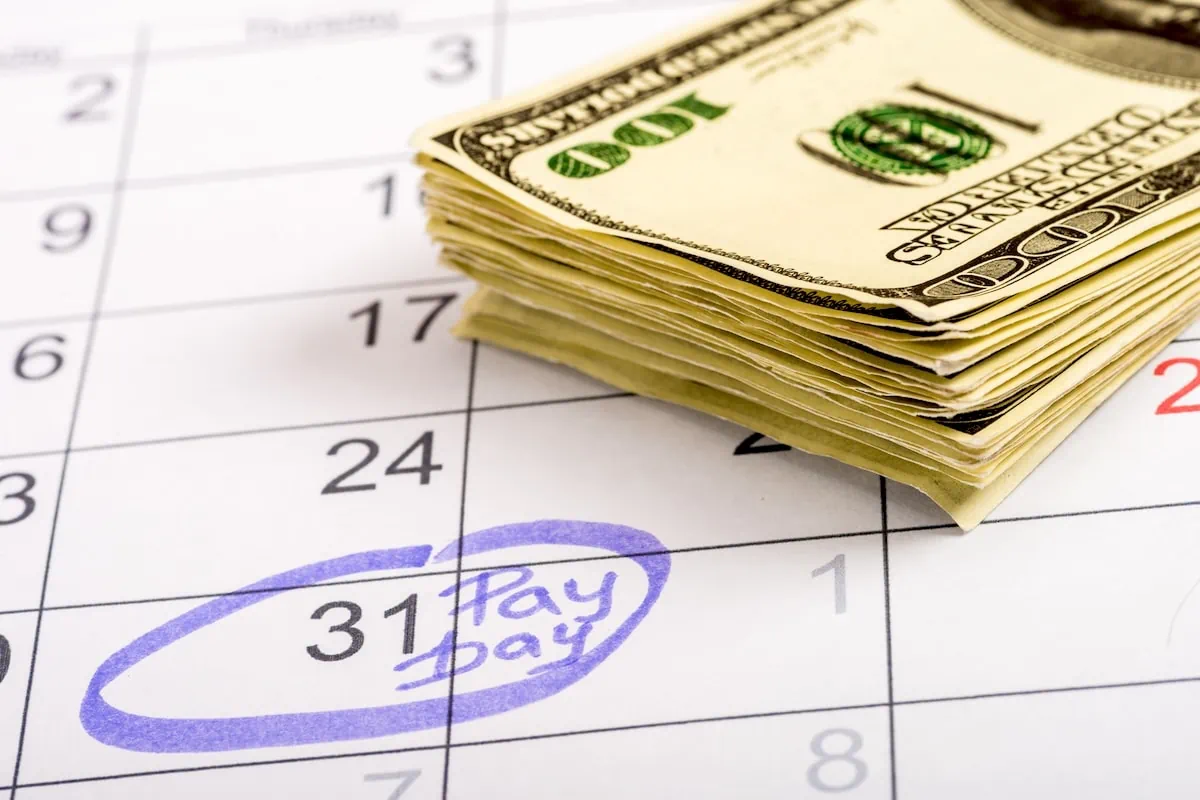
The vast majority of American dividend stocks pay regular, reliable payouts—and they do so at a more frequent clip (quarterly) than dividend stocks in most other countries (typically every six months or year).
Still, if you’ve ever thought to yourself, “it’d sure be nice to collect these dividends more often,” you don’t have to look far. While they’re not terribly common, American exchanges boast dozens of monthly dividend stocks.
Please Don’t Forget to Like, Follow and Comment

Did you find this article helpful? We’d love to hear your thoughts! Leave a comment with the box on the left-hand side of the screen and share your thoughts.
Also, do you want to stay up-to-date on our latest content?
1. Follow us by clicking the [+ Follow] button above,
2. Subscribe to The Weekend Tea, our weekly newsletter to read more about investing, spending, taxes, and more, and
3. Give the article a Thumbs Up on the top-left side of the screen.
4. And lastly, if you think this information would benefit your friends and family, don’t hesitate to share it with them!






